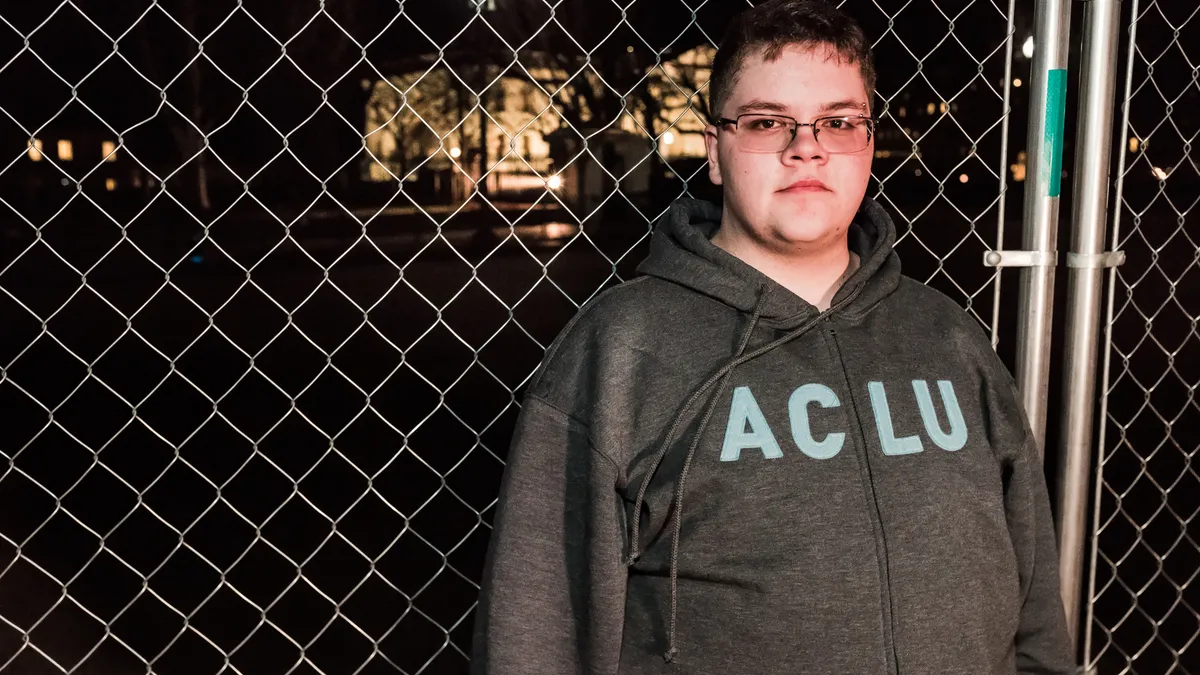Dive Brief:
- After deliberating in late June, the U.S. Supreme Court announced Monday it will not hear Grimm v. Gloucester County School Board, a 2015 case that had the potential to decide whether schools are violating LGBTQ students' rights when they prohibit them from using facilities such as locker rooms or bathrooms aligning with their gender identity. Only Justices Clarence Thomas and Samuel Alito voted to hear the case.
- The case arose after a student, Gavin Grimm, revealed to his school that he is transgender, and school board policy prohibited him from using common bathrooms aligning with his gender identity. Virginia's Gloucester County School Board has repeatedly appealed lower courts' decisions in support of Grimm, which resurfaced the possibility of the case being taken up by the Supreme Court.
- A decision on the case would have settled a debate spanning multiple presidential administrations over whether Title IX includes protections for LGBTQ students against sex discrimination.
Dive Insight:
While the U.S. Department of Education under President Joe Biden recently announced its interpretation of Title IX, which protects LGBTQ students from sex discrimination in schools, the courts have been split — with the majority ruling in favor of LGBTQ students. Even in this case, the Supreme Court declining to hear oral arguments means the lower court's decision in favor of Grimm still stands.
"This is an incredible victory for Gavin and for transgender students around the country," said Joshua Block, Grimm's attorney, in a statement.
The decision sets a strong precedent for schools in the Fourth Circuit, which includes Virginia, Maryland, North Carolina, South Carolina and West Virginia. However, a future split in the circuits would necessitate a national ruling. A Supreme Court interpretation of Title IX had been long anticipated by both the education sector and civil rights organizations, as polarizing interpretations of the civil rights law under the Obama, Trump, and now Biden administrations threw the future of the case and school policies nationwide in flux.
In the absence of federal guidance from the Supreme Court, attorneys have advised districts to craft and enforce policies in favor of transgender students. This has been especially true since the Supreme Court released its decision over a year ago on Bostock v. Clayton County, Georgia, a landmark case that decided LGBTQ discrimination is unlawful sex discrimination in the workplace. However, in that case, the justices declined to address transgender policy in schools.
And while many local and state laws already require equal treatment of LGBTQ students, a Supreme Court decision on whether Title IX protects them from sex discrimination could have preempted those protections.
There are still multiple similar cases making their way through the lower courts, which may eventually reach the federal bench.
While it's unusual for the U.S. Supreme Court to walk back on its own precedent, as set by Bostock in this case, Justice Amy Coney Barrett, who is known to be conservative overall and especially in LGBTQ cases, has since been added to the bench, leaving the future of a similar case and school policies uncertain.







 Dive Awards
Dive Awards




